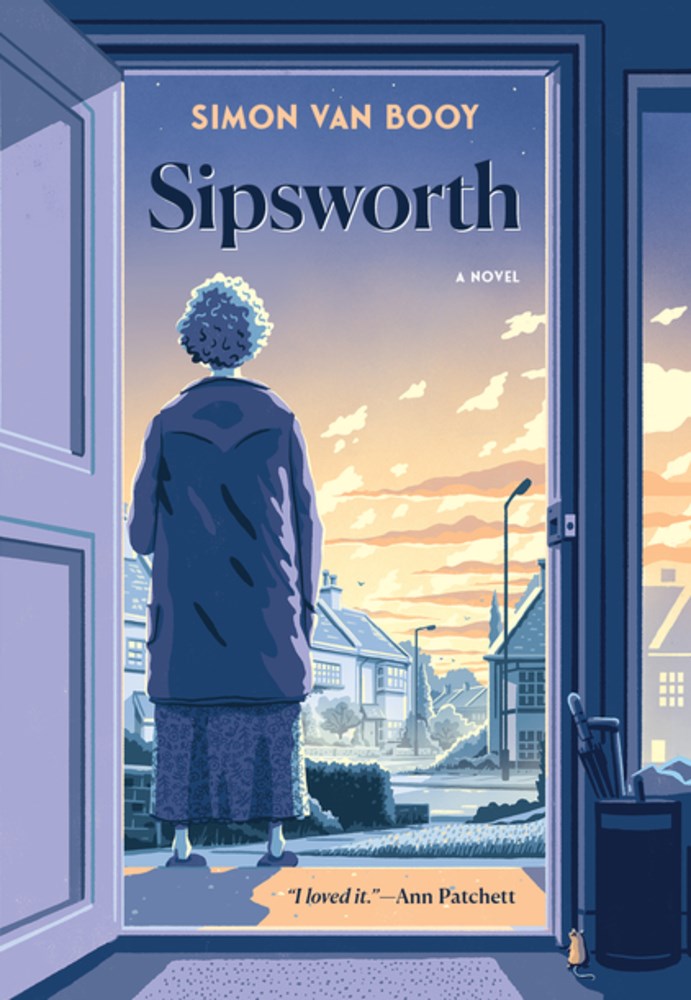“Sad Grownups” Explores What Sadness Says About Life
Rechercher dans ce blog
- janvier 202610
- décembre 202510
- novembre 20259
- octobre 202515
- septembre 202518
- août 202516
- juillet 202519
- juin 202515
- mai 202519
- avril 202515
- mars 202518
- février 202515
- janvier 202511
- décembre 202412
- novembre 202414
- octobre 202419
- septembre 202419
- août 202415
- juillet 202419
- juin 202418
- mai 202417
- avril 202418
- mars 202421
- février 202417
- janvier 202412
- décembre 202314
- novembre 202315
- octobre 202319
- septembre 202318
- août 202318
- juillet 202314
- juin 202317
- mai 202317
- avril 202311
Qui êtes-vous ?
“Called by Distances” is Precise and Focused
Recent in Technology
“Sipsworth”: A Slender, Powerful Novel
Like many who have lost a beloved, I’ll read almost anything that touches on grief. Watching fictional characters navigate the murky waters of bereavement, seeing them traverse the illogical backward-and-forward paths of mourning, makes me feel understood, and less alone on my own journey. So when I heard about Sipsworth, Simon Van Booy’s latest novel, I jumped at the chance to read it — in spite of a fictional mouse giving the work its title.
Sipsworth is the story of Helen Cartwright, an elderly woman who returns to the English village of her childhood, alone, following the deaths of her husband and son. Helen is mired in routine, and one day is much like the next. She feels her life can be lived only as the “after” of all she had before. She avoids, when she can, thinking about her lost beloveds, instead “Turning from any face that appeared in the dust or the darkness between cans.” Her grief even dictates that she always walk, because “taking a taxi would mean talking. Being asked questions that rattle the doors she keeps locked.”
Unexpectedly, a visitor comes to Helen’s widow digs in Westminster Crescent, and it turns out he has things to teach her. This sage arrives, marvelously, in the form of a wee mouse, whose “eyes are like two currants, but bright with something she has seen before, in the faces of those who now haunt her.”
I am steadfastly cute-averse where fiction is concerned; more than one member of my book group narrowed their eyes or shot me a dirty look when I suggested that A Man Called Ove was perhaps a little too sappy. Sipsworth, though, latched onto me with its tiny, mousy hands from its earliest pages.
It’s compelling, a charmer of a novel, crafted with plain prose that only occasionally veers into the obvious and overly lyrical. The simplicity of Booy’s style is, I think, what gives this slender novel its power. It allows space for Booy’s meditations on grace, but doesn’t pretend to be more than an uplifting tale with a few simple life lessons tucked inside.
Booy depicts aging and atrophy, loneliness and invisibility, with compassion. “It is no longer Helen’s world to think about. And in her mind it is the same news over and over again, with the only difference being that people think they’re hearing it for the first time.” When there is a string of robberies in the village, Helen thinks, “But what does she have to steal? This is a place where everything of value has already been taken.”
Booy shows us the rewards of loving, and the importance of connection. After reading Sipsworth, you may find yourself considering what life might be like for the elderly among us. You may question assumptions you’ve made about the neighbors you’ve never bothered to meet. You’ll likely look at your own life, and any pets in it, with renewed vision and appreciation.
Like a Bakewell’s pie or a tin of cocoa biscuits, the comforting and captivating Sipsworth is hard to put down. I read it all in one go, finishing it in the evening. Later that night, I dreamt that there was a German word whose name, translated literally, meant “happy lighting.” In my dream this word was a literary term for a work that is unusually optimistic, or one that simply makes you feel brighter and lighter on reading it. I yearn to possess this dream-word now, as it would be just the thing for this review. Sipsworth will make you feel lighter, brighter, and more alive.

FICTION
Sipsworth
Published May 7, 2024
David R. Godine Publisher



0 Commentaires